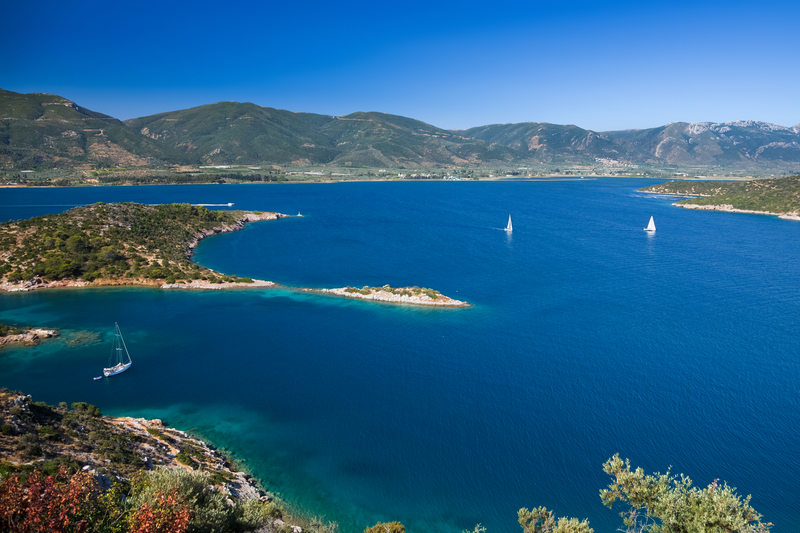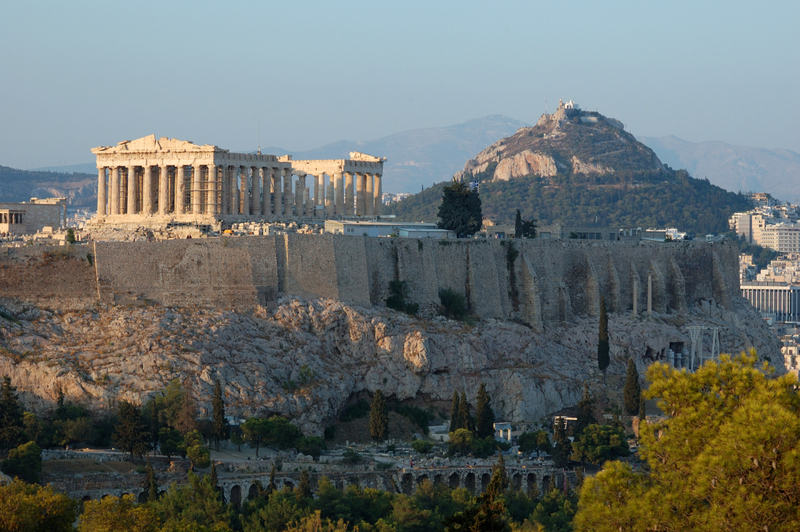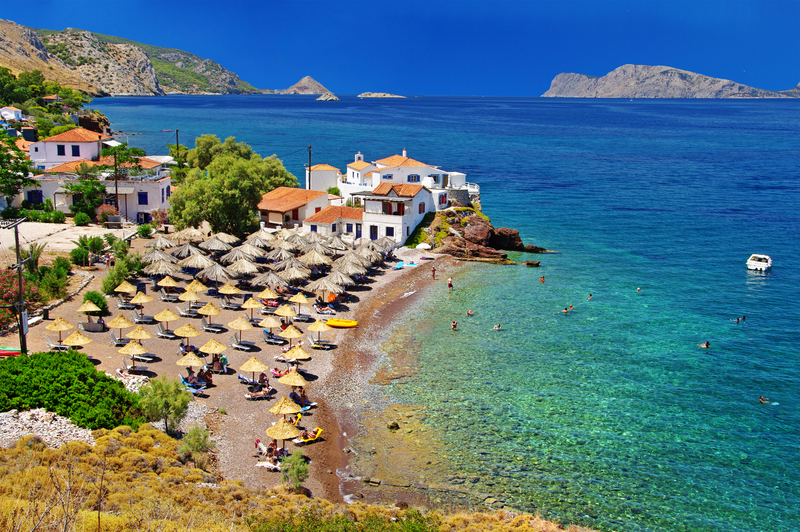The Aegean Sea may hold more history and legend in its waters than any other body of water in the world. Located in the eastern Mediterranean, this is the sea upon which those thousand Greek ships sailed when they set out to sack Troy and rescue the lovely Helen. The Aegean is where western civilization was born; the Myceneans, the Minoans, and later, the more well-known states like Athens and Sparta lined its coast. Plato likened the situation to “frogs around a pond.”
A history lesson and a few thousand years’ worth of ancient ruins, however, are just a couple of the many reasons to visit the region. Located in the eastern part of the Mediterranean, the Aegean enjoys a comfortable subtropical climate. This makes it an ideal destination for cruises and vacationers: summers are dry with warm to hot temperatures, and the winters are fairly mild with more rainfall. While other nations and states have shared the Aegean coast in the past, only Greece and Turkey border it nowadays.
 The Aegean Sea covers roughly 83,000 square miles, with the Black Sea feeding into its northeastern corner via the Dardanelles. On the western side is Greece and a strait that connects to the Ionian Sea, which lies between the Italian peninsula and the Dalmatian coast.
The Aegean Sea covers roughly 83,000 square miles, with the Black Sea feeding into its northeastern corner via the Dardanelles. On the western side is Greece and a strait that connects to the Ionian Sea, which lies between the Italian peninsula and the Dalmatian coast.
Hundreds of islands are to be found in the Aegean, both large and small. Most of them belong to Greece, but recent decades have seen some disputes with Turkey over the details. Despite a lack of technology, many ancient travelers found it easier to travel over the water than to navigate Greece’s rough land routes. An Aegean sailor was never very far from landfall. Crete, at the southern edge where the Aegean meets the Mediterranean, is the largest of the Aegean islands. It is perhaps the most famous as well, but none of them are short on beauty.
However, the Aegean is not a place to go in search of a lush tropical paradise; it is generally too dry during the warmer parts of the year. Most of its islands are rather rugged, some are volcanic, and some are downright barren. The beaches, however, are excellent, as is the food. The pristine blue waters of this sea draw visitors from across Europe and the rest of the world. You’ll find the standard delicious Mediterranean fare here: lots of wine, olives, olive oil, and other Greek staples. Seafood, of course, is never in short supply. It’s as healthy as it is tasty.
|
Greece |
||
|
|
|
|
|
Islands of Greece |
||
|
|
||








